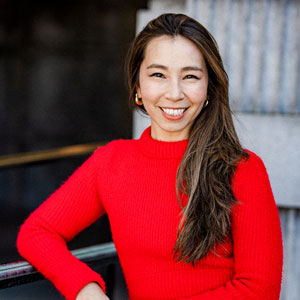Monica P. Band, EdD, LPC

Owner & Mental Health Advocate
Mindful Healing Counseling Services, LLC
Member Since 2011
ACA is a community of diverse, vibrant counselors and educators who are changing lives and the world at large. Monica P. Band, owner of Mindful Healing Counseling Services in Washington, D.C., rests her therapeutic and advocacy work at the intersection of mental health and diversity, equity, and inclusion.
Briefly describe a typical day in your work life?
My typical day is filled mainly with providing mental health therapy to clients. During the early half of the week, I schedule telehealth sessions. Mid-week, I meet with clinical supervisees, and the latter half is in the office, where I provide EMDR therapy to individual clients in person. Throughout the month, I leave time to connect with colleagues across the U.S. via Zoom, work on writing projects, and provide training, consulting, and education to other organizations. I recently finished production on a new podcast series, I Need To Ask You Something, and during that year, I balanced seeing clients and recording sessions.
What is the biggest challenge facing the mental health field today?
Access to mental health care remains a significant challenge due to geographic, financial, and systemic barriers. Limited availability of services, especially in rural areas, along with high costs and insurance limitations, restricts many from seeking or affording treatment. Moreover, the shortage of mental health professionals exacerbates the problem, resulting in long wait times for appointments. These barriers prevent timely access to crucial support, perpetuating disparities in mental health care and leaving many individuals without the assistance they urgently need.
What do you think are the biggest misconceptions about counseling?
A common misconception about mental health is that it solely revolves around extreme conditions. In reality, mental health encompasses a spectrum from everyday fluctuations to severe disorders. Many perceive it as related exclusively to disorders, overlooking its broader scope that includes emotional resilience, stress management, and overall well-being. This misconception leads to stigmatization and neglect of the everyday mental health needs of individuals. Understanding that mental health involves a continuum of experiences is crucial in fostering a holistic approach to well-being for everyone.
What role do you think counseling plays in the delivery of mental health services in today's society?
Counseling is a critical mental health service today, but it's not the sole avenue. Social media and expanded resources offer diverse alternatives beyond traditional therapy, fostering conversations on well-being and providing varied solutions. While these outlets combat stigma and broaden discussions, they also demand discernment due to misinformation. Yet, they represent a positive shift, serving as accessible options for those unable to afford or readily access therapy. This multifaceted landscape emphasizes the need for informed content consumption while presenting invaluable alternatives to immediate therapeutic support.
What do you do to take care of yourself and rejuvenate?
I am uncompromising about my sleep and morning routines, especially when I go to bed. I unplug and give myself enough time to wind down from the day. I have a skincare routine and enjoy microlearning by listening to my favorite podcasts or audiobooks while I prepare for the day. In between client sessions, I walk our dog, so I am usually out for a nice walk at least three times a day to break up the routine. Finally, if I have the foresight, I like to schedule a once-a-month massage, Charka balance, or facial for myself--it really makes me feel connected to my body.
What outside of counseling brings you joy? Tell us about your hobbies or outside interests.
Family and friends come to the top of my mind. I could spend all day with my partner and our dog, just existing. When we feel active, we like to hike and camp. My friends are spread across the U.S. because I met them in graduate school, and they've since moved to different places. Catching up with them and sending funny memes or articles is a hobby--it takes a lot to maintain adult relationships! Most of the time, I enjoy writing, painting, and discovering new music and food. Is coffee a hobby? It definitely brings me joy.
If you’d like to share how ACA membership or participation has helped you along your career journey, please do!
Mentorship and community. These are the two most significant benefits of being an ACA member, and they have certainly helped me in my professional and personal growth. I was lucky to start my career development and service work in Virginia, where there is a strong group of passionate counselors in the Virginia Counselors Association (VCA). They saw something in me before I felt ready--they guided, taught, and supported me on how to become a more effective servant leader within our profession. I took chances in saying "yes" to many opportunities presented through VCA and later transitioned to national service. ACA helped me find and strengthen my voice. But none of that was possible without the mentorship of some profound people and community support.
